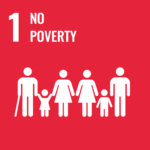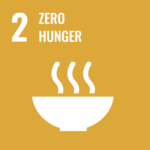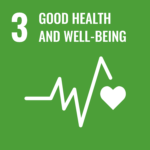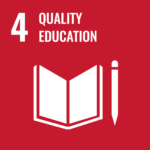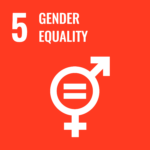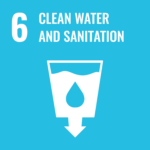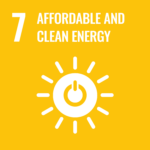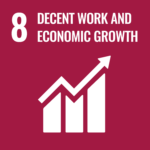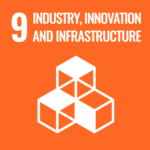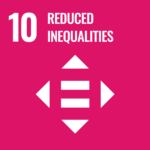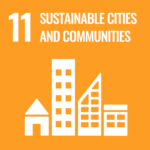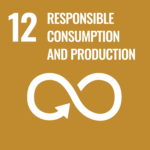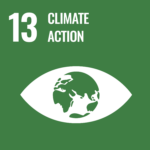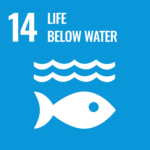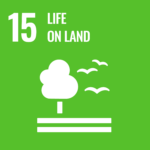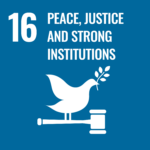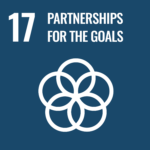2 - Zero hunger
Two years later, families in Kenya’s informal settlements are still food insecure
The scorching sun is unforgivingly baking the ground in Korogocho slums in Nairobi with the same intensity that pangs of hunger are hitting the bellies of Joyce Khamala and her three children. To this family, lack of food is a rodeo that they are used to riding, but not as brutally as it has been since the COVID-19 pandemic hit the world. The thirty-three-year-old mother of three says that she and her children have faced all the pain that COVID-19 could inflict on anyone: death, stigma and…
Read More...
Read More...
The fresh food in this outdoor fridge is for everyone who need it
Since the outbreak of the pandemic, poor individuals and families have – even in Denmark - been in desperate need of free food that would otherwise have become food waste
Read More...
Read More...
“Ollas Comunes” in Chile in times of the “new normal”
Due to the advance of COVID-19 - during 2020 - neighbors, friends and families from popular neighborhoods in Chile organized “common pots”, a form of popular organization where, through the delivery of homemade meals, food was assured to thousands of people impoverished and unemployed by the pandemic. In 2021, the “Ollas Comunes” or “Common pots” across the country face new challenges: to continue the project despite the low donations and the return to "normal" life of the members who contribute…
Read More...
Read More...
El resurgimiento de las “ollas comunes” en Chile: solidaridad en tiempos de pandemia
Durante 2020, debido al avance del COVID-19, personas de barrios populares de Chile han estado organizando “ollas comunes” como una forma de asegurar alimentación a su comunidad. Vecinos, amigos, familias del mismo barrio que sufren por el desempleo y la precariedad laboral debido a la pandemia, han fortalecido este sistema de distribución de alimentos para asegurar una comida diaria a miles de familias en todo el país.
Read More...
Read More...
The resurgence of “Ollas Comunes” in Chile: Solidarity in times of pandemic
During 2020, due to the advance of COVID-19, people from popular neighborhoods in Chile have been organizing “Ollas Comunes” or “Soup Kitchen” as a way to provide meals to the community. Neighbors, friends, families from the same area who suffer from unemployment and sickness due to the pandemic, get organized and start again this historic food distribution system to ensure daily meals to thousands of families across the country.
Read More...
Read More...
Learning from one of the marginalised sectors in society – the Higaonon tribe of Bukidnon,…
While we fight for the last grain to survive, the Higaonon tribe – a group of indigenous peoples in the remote mountain villages of Bukidnon, Philippines – have lived for centuries utilising the plant resources in their ancestral land. These resources play an essential role in the resilience of the Higaonon tribal community.
Read More...
Read More...
Can a pest species earn you more than the principal crop?
In October 2020, Krishnanunni Mavinkal Ravindran defended his Master thesis at Dept. of Food and Resource Economics (IFRO), University of Copenhagen. In this article, he tells about the fieldwork experience in Ghana. Krishnanunni studied the contribution of an edible pest species - shea caterpillars - to rural livelihoods in Ghana and the accessibility constraints associated with its harvest.
Read More...
Read More...
Gulu: When a PhD Student Investigates the Relevance of a University to the Neighbouring Community
When Asaf Adebua in 2017 started to study for his PhD at Gulu University 'The Contributions of Institutions of Higher Learning to Post-war Community Transformation: The Case of Gulu University in Gulu District', he was investigating the relevance of his university to the community it targets to transform, going by the university’s motto, For Community Transformation.
Read More...
Read More...
Food innovation for a sustainable future
It is becoming increasingly more evident that meat overconsumption is problematic due to various factors and there are direct consequences to the patterns of meat consumption in excess. I met with Ph.D. student Krishnachandra Sharma Hidangmayum, at University of Copenhagen Department of Food Science, to learn about his insights in the subject and the work he has done to advance sustainable solutions in food innovation.
Read More...
Read More...
Uganda’s Unique Refugee-Hosting Model: Between Reciprocal Innovation and Challenges
While mixed migration to the industrialised world captures most media and political attention, the reality is that approximately 85 percent of the worlds refugees and asylum seekers are hosted in so-called developing countries. Uganda is, as a low-income nation at the size of the UK, hosting more than any other African country. Uganda, further has the world’s third largest refugee population, after Turkey and Pakistan, with more than 1.3 million refugees by September 2019, of which more than one…
Read More...
Read More...


